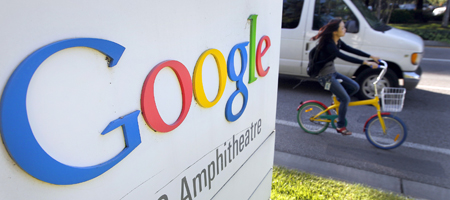Google faces EU investigation over privacy
Google is rolling out its new privacy policy from today, despite warnings from EU authorities that its pooling of user data might breach European law.

The new privacy rules, which have come into force as of 1 March, allow Google to collect user data and share it with its other platforms including Gmail, YouTube and Blogger.
Users are unable to opt out of the new policy unless they stop using Google’s service.
Google argues that it will simplify privacy rules and consolidate 60 separate policies.
But France has led calls for a delay in the changes as an investigation is carried out by European authorities.
‘Strong doubts about lawfulness’
The French privacy regulator CNIL has expressed its “deep concern about the combination of personal data across services.”
The CNIL and EU data authorities… have strong doubts about the lawfulness and fairness of such processing and its compliance with European data protection legislation. -French privacy watchdog CNIL
In a statement to Google, it said that both CNIL and EU authorities “have strong doubts about the lawfulness and fairness of such processing and its compliance with European data protection legislation”.
CNIL warned it has “strong doubts about the lawfulness and fairness of such processing, and its compliance with European data protection legislation.”
Google responded to the concerns, saying it was happy to answer any questions from Europe’s data protection authorities.
“As we’ve said several times over the past week, while our privacy policies will change on 1st March, our commitment to our privacy principles is as strong as ever,” Google’s global privacy counsel Peter Fleischer wrote in a blog post.
He added: “We are confident that our new simple, clear and transparent privacy policy respects all European data protection laws and principles.”
Deleting browsing history
The investigation comes as Google faces criticism over its business model which sells user-targeted advertising based on browsing information from its visitors. But until now, that information has not been linked between its different services.
Google says that users are able to search anonymously or log out to avoid having their browsing data tracked.
Technology websites have also suggested that people who are concerned by the use of their data can delete their browsing history at google.com/history.